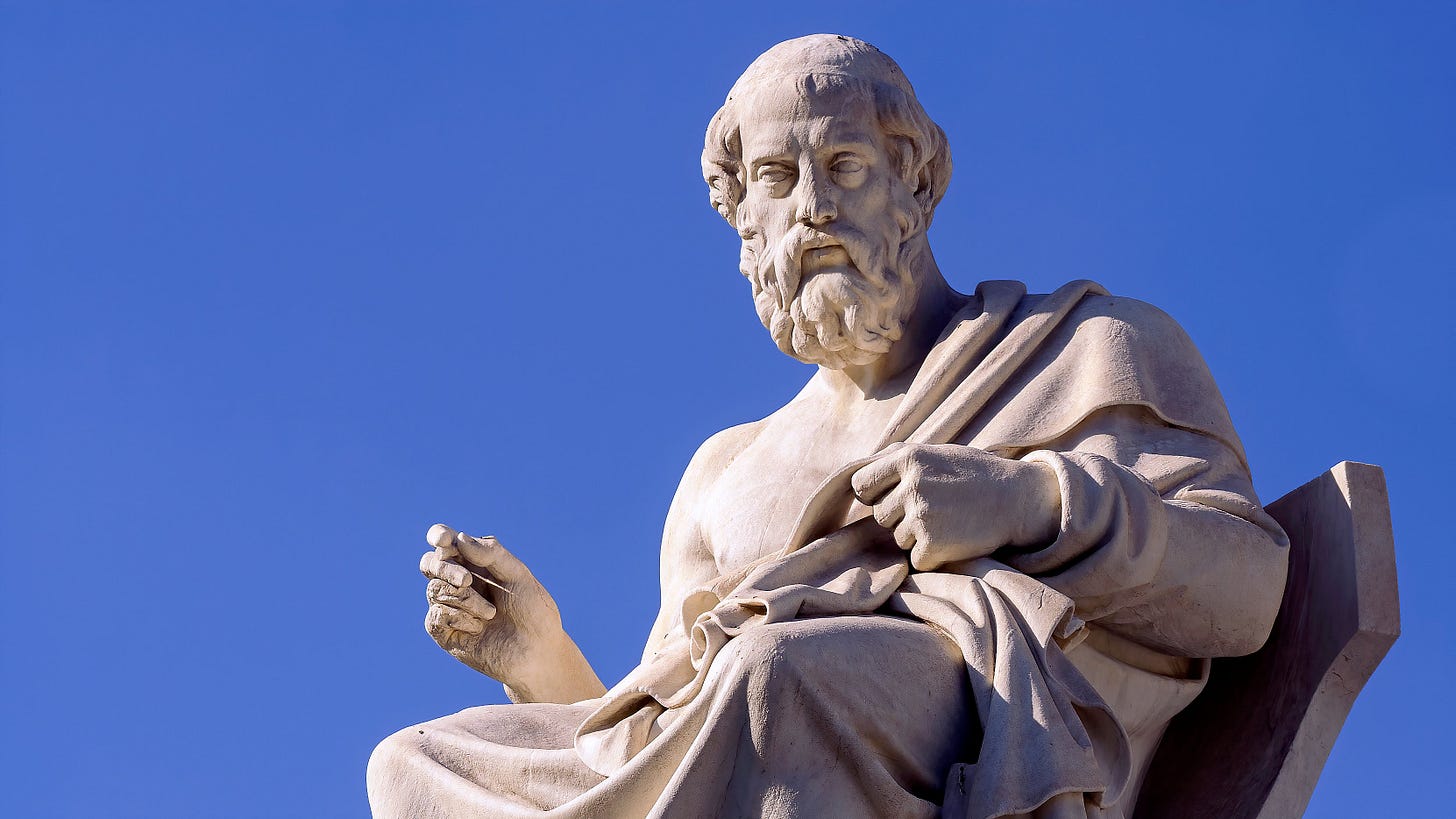Lessons from History: Plato
Plato's Ascending Stairs
Hello Aesthetics Advocates!
I developed a love of aesthetics in 2002 because of the question: what is beauty? And this question led me to further study of philosophy. I dove into this history of exchanges between different people from different cultures living in different times. I value historical insights from different philosophers, which I will present every so often under the main title, “Lessons from History.” I hope you enjoy these brief excursions to the past to help refresh our present notions about aesthetics.
Philosophical ideas about aesthetics find their origin about 2500 years ago in Ancient Greece with the writings of Plato. Written as dialogues, the style of Plato’s writings is both enjoyable and instructive. He fabricates these dialogues, but they illustrate that philosophy is a conversation. And beauty is an important thing that brings people together to discuss and experience.
Due to his belief about reality, Plato unfortunately maintained a largely negative view of art, especially the effects of poetry on the audience. (I wonder what he would think about heavy metal or rap.) His theory of art as imitation considered works of art to be lesser than ultimate reality or truth. Works of art move down away from truth, like descending stairs. His famous example is a couch. He believed there was a perfect idea of a couch. Then, the carpenter imitates that idea to make a physical couch. Finally, the artist paints a picture of the couch. So, the artist is furthest removed from the truth, according to Plato.
However, his belief about beauty moves in the opposite direction, like ascending stairs. In a delightful dialogue, The Symposium, Plato explains that we experience the physical beautiful of a person or object, which leads to more experiences of people and objects. These physical beauties guide us to the beauty of souls and ideas, and then finally, ultimate Beauty.
Whether Plato truly believed this process of ascension remains debatable, and it sounds fantastical to our ears. But when we strip away the metaphysical baggage, the lesson here is that Plato was the first to declare that beauty is, in some sense, connected with knowledge.
We shouldn’t think of knowledge as the same as education or book-smart, though those play a part. Knowledge can be attained through formal education and books, but this would be incomplete. Knowledge requires experience. If someone, for example, reads every book about writing, but never writes anything, then we wouldn’t think of them as a writer. Experience (or practice) is integral to our knowledge of making and appreciating beauty.
So, Plato claimed that continuing to comprehend a knowledge of beauty would lead a person to the highest perfection of Beauty. Chances are that we don’t adhere to that otherworldly notion of beauty, but it is still good to deepen and expand our knowledge of beauty and beautiful things.
There are a few reasons why this is worthwhile. First, we are drawn to the familiar, but the familiar may not provide the best aesthetic experiences for us. Seeking to expand our experiences of beauty creates the possibility for greater aesthetic experiences. Second, beauty provides solace during the struggles of life. Beauty causes pleasure, and we should develop a mental repository of beautiful things to contemplate during difficult moments. Lastly, taste in beautiful things provides knowledge of others and ourselves. In some studies, people report a strong connection between their identity and their taste in art and music.
This is not an exhaustive list of reasons, but it’s a start. And if Dostoevsky was correct that beauty will save the world, then we need to experience as much of it as we can.
What I’ve Been Up to
I’ve been teaching History of Aesthetics at MassArt. We explore a variety of topics, like beauty, the sublime, and the value of art, from thinkers throughout history.
My latest essay on Radiance has been published on BeautyMatter.
I spoke with Briar Prestidge on her podcast Hyperscale about digital fashion, sustainability, and identity.
To invite me to speak or write to your group or organization, please email me at michaelrspicher@gmail.com



